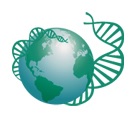Cuba
STATUS OF ANTIBIOTIC RESISTANCE
The most urgent antimicrobial resistance problems in Cuba are lack of updated antibiotic use and treatment guidelines and lack of continuing medical education on antibiotic use for prescribers. Acute Respiratory Infections have the highest prevalence in Cuba.
CHAPTER OVERVIEW
APUA Cuba was established in 1996 in collaboration with the Centro de Quimica Farmaceutica, and includes 58 members. The chapter leaders have shown interest in WHONET, a surveillance program to monitor local and global spread of resistance, and would like to introduce the program in Cuba. In October 1997, the chapter organized a conference entitled, "Methodological and Functional Considerations of Antimicrobial Resistance," in collaboration with Center for Medical and Surgical Research(CIMEQ). The conference examined topics such as:
- resistance detection methods
- susceptibility tests
- experience in the intensive care clinic
- microbiological mapping
CHAPTER ACTIVITIES
The latest field report on APUA-Cuba
APUA Cuba has been active in the fight against antibiotic resistance via research, prescriber training and information, expert advice and media information, collaboration with other organizations, facilitation of collaboration between experts as well as conferences and poster sessions.
APUA-Cuba recently took part in two large-scale conferences on antimicrobial use issues, both within Cuba and throughout the region of Latin America. The first conference was the National Workshop on Antibiotic Resistance, which was sponsored by APUA-Cuba and took place in the Cuban municipality of the Isla de la Juventud from October 13 to October 15, 2011. Over 100 representatives from 11 hospitals and research institutions throughout the country were present, holding symposia, panel discussions, and round table discussions focused on raising national awareness of the issue of antibiotic resistance and proposing counterstrategies. The participating institutions summarized their findings into a document called the Nueva Gerona Declaration on Antimicrobial Resistance.
The Nueva Gerona Declaration took as their motto the slogan of World Health Day 2011 – “Si no actuamos hoy, no habría cura mañana (No action today, no cure tomorrow).” The Declaration called all Cuban scientists and health professionals to work together to promote, implement, and oversee programs and government policies geared towards the rational and prudent use of antibiotics. It also emphasized necessary steps such as: 1) promoting education about antibiotic resistance among healthcare professionals as well as in the patient population, 2) improving laboratory capabilities and diagnostic technology, 3) scrutinizing and regulating the use of critically important antibiotics, 4) collaborating between and within healthcare facilities and their subdivisions (e.g. pharmacy, clinical laboratories, microbiology laboratories), and 5) promoting preventative measures such as hand hygiene.
APUA-Cuba also attended the workshop “Antimicrobials for Veterinary Use,” sponsored by the Cuban Ministry of Public Health, and gave the first lecture there on “The Global Landscape of Infectious Disease: the Situation in Cuba.” Dr. Moisés Morejón (APUA-Cuba President) spoke about the close relationship between human and animal health and the rise in foodborne illness caused by Staphylococcus, especially those caused by multidrug-resistant staphylococci (MRSA) found in both food animals and the food industry personnel who work with them. He emphasized that the misuse of antibiotics in agriculture and food animal production is contributing to the danger of food animals becoming reservoirs of MRSA and other resistant bacteria.
Dr. Ana Granda (of the National Center for Nutrition and Food Hygiene) spoke about the need for surveillance to predict the emergence of resistant strains of bacteria around the world, and Dr. Marieta Sonali (also of the National Center for Nutrition and Food Hygiene) spoke about the emergence of foodborne disease as a growing global health problem and the need for improved food safety policies “from farm to fork” throughout Latin America. Dr. Emigdio Lemes (Drug Registration Office of the Institute of Veterinary Medicine) introduced his newly approved national project entitled “Procedures for the Responsible and Prudent Use of Antimicrobials in Veterinary Medicine in Cuba,” which proposes a ban on antibiotics as growth promoters in food animals as well as a ban on using human antibiotics in animal production. The workshop culminated with the founding of a sub-chapter of APUA-Cuba, APUA-Cuba Veterinary, to develop guidelines for the appropriate use of antibiotics in humans and animals.
APUA-Cuba has worked tirelessly throughout 2010 and 2011 and has established five sub-chapters in different parts of the country. Today, their membership is 1070 members and still growing
CHAPTER LEADERSHIP
MsC Dr. Moises Morejon Garcia
MsC Dra Rosa Salup Diaz
Lic Manuel Cue
Dr. Fidel Espinosa
DrC Miguel Blanco
MsC Dr. Juan Marchena
MsC Dr. Luis Solar
MsC Dra Hilev Iarron
MsC Dra Zuleica Galilntensivista
DrC Dianelys Quinoñes
Publications:
Int. J. Environ. Res. Public Health 2010, 7, 2238-2255; doi:10.3390/ijerph7052238
"In the last 10 years, many LAC governments, with the support of international organizations, have made remarkable efforts to regulate and control the proper use of antibiotics. Part of this effort is the creation of the Alliance for the Prudent Use of Antibiotics (APUA) in Cuba, Brazil and many other LAC countries. APUA-Cuba was established in 1996 and its current interests include surveillance programs to control and monitor drug resistance." [33]
